Talking about periods with kids: 7 top tips with advice from the experts

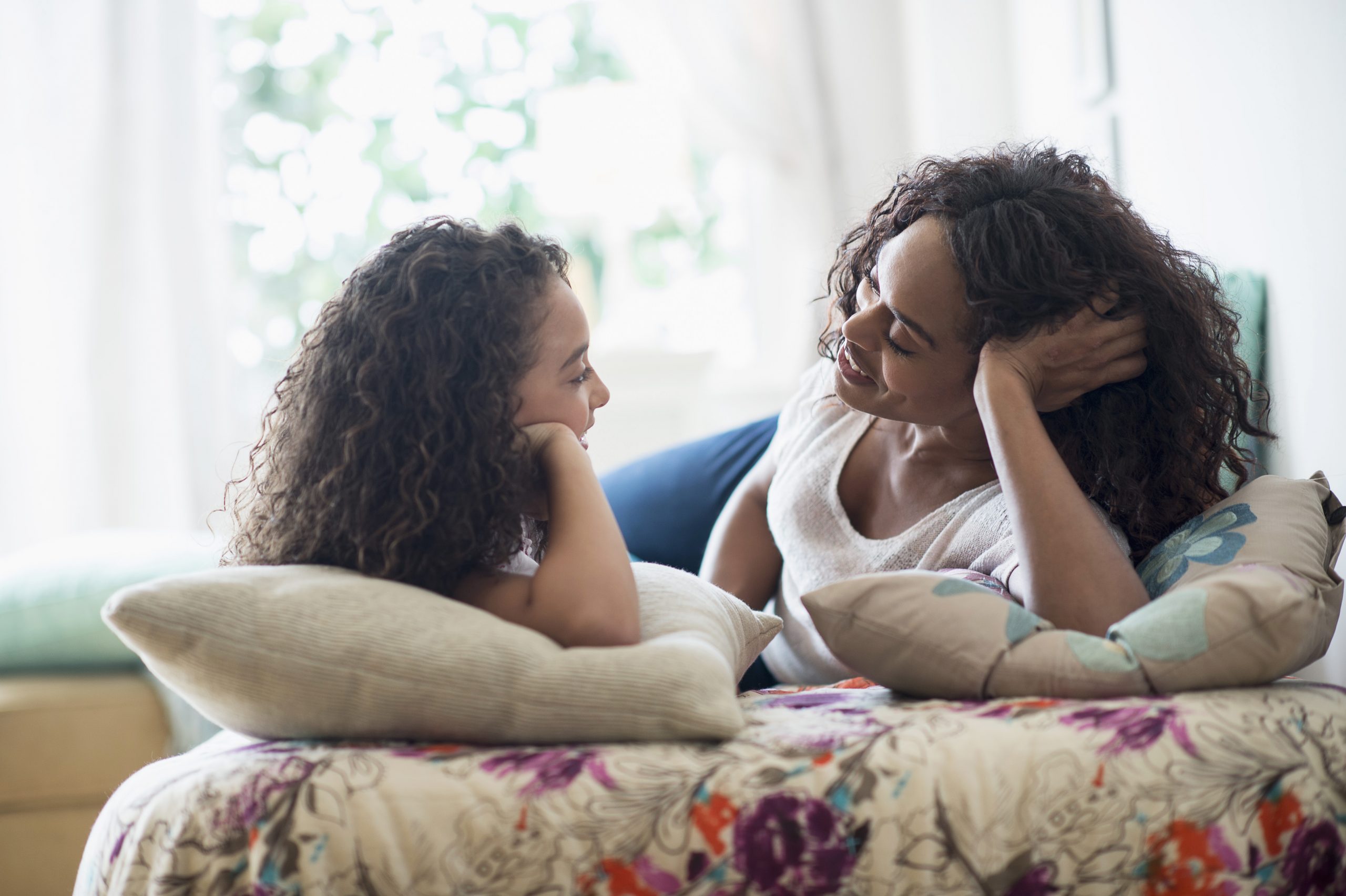
Many parents find talking about periods with children undoubtedly difficult. You don't want to start too early and leave them with more questions than answers, but holding back information may mean they learn about the facts of life from other, potentially unreliable, sources.
This is especially true when it comes to discussions about the menstrual cycle, recent research from Shine Aloud UK reveals. 1 in 4 girls reportedly start their period before they learn about it at school, meaning there are gaps in their knowledge which could cause unnecessary fear and confusion. Over 30% of those surveyed felt they did not learn all they needed to at school about how their body changes during puberty.
So if you want to start talking to your child - no matter their gender - about periods, period products and how bodies change during puberty, these are some pointers from the experts to get started.
Talking about periods with kids
1. No time is too young to start talking
Learning how to talk to children about periods early on is essential in ditching the taboo around puberty. Young children might have questions already, especially if they see period products around the home, or you can bring it up naturally using adverts, television programmes or even introduce them to the topic with a book.
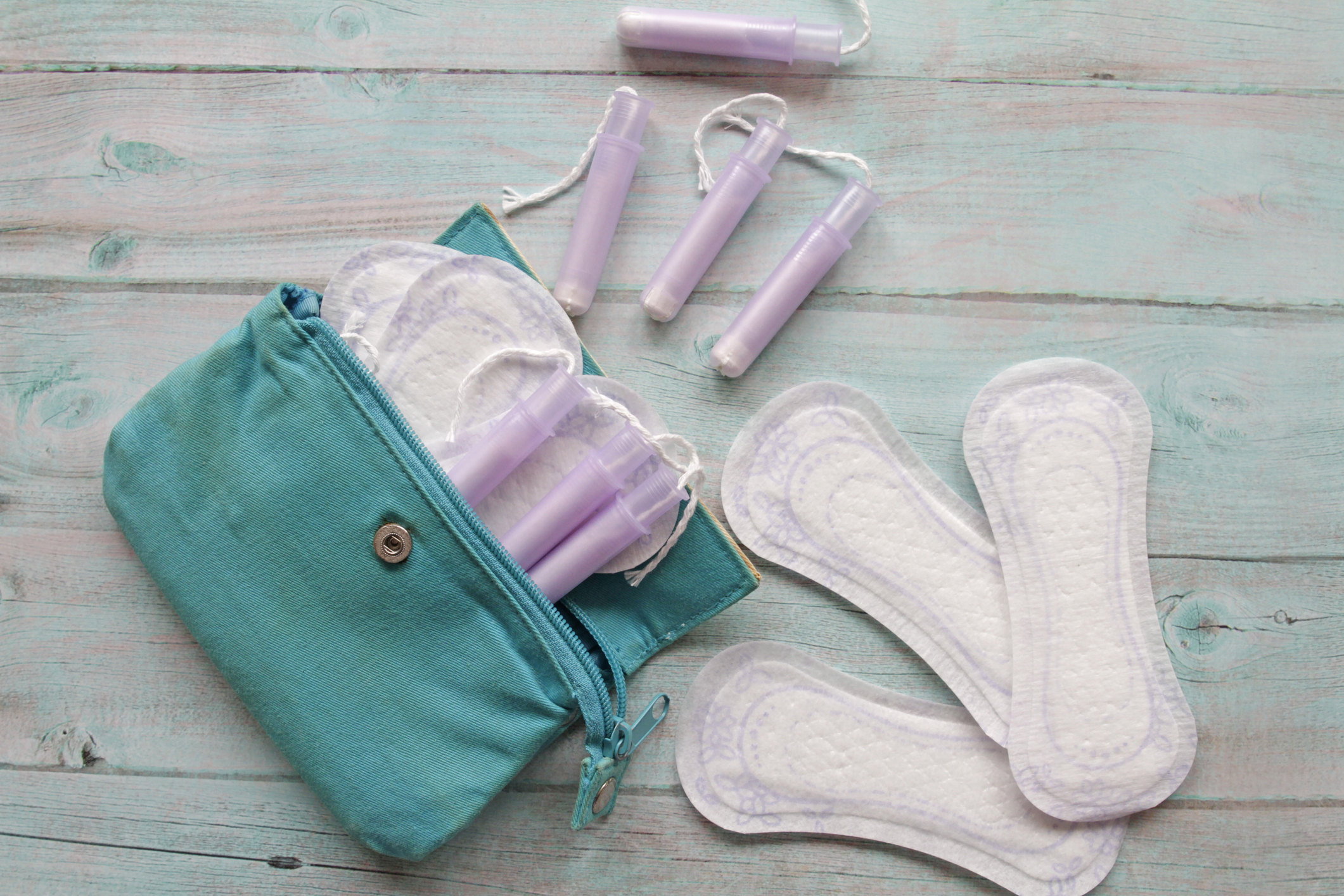
While lots of parents are worried that talking about periods and puberty at an early age will scare or embarrass their child, it's better to be safe than sorry. Most girls start their periods at the age of 12, according to the NHS, and it's not unusual for some young people to get them at nine or 10 years old.
It will be more traumatic for them to start their period without explanation than to discuss it before it happens. And boys will start hearing things on the grapevine soon before, so you want to make sure they know it's something perfectly natural and not something to make their friends or classmates feel insecure about.
Traci Baxter, expert at Bodyform says, "Remember that there is no such thing as a typical age for the first period and starting at 9 is just as normal as starting at 16. However, if your daughter is the first or the last to start her period, she may need some extra reassurance from you."
Parenting advice, hot topics, best buys and family finance tips delivered straight to your inbox.
2. Spread it over lots of smaller conversations
Once you've broken the ice and had your first period-related chat, set it up as an ongoing conversation. Let your child know that they can come to you with any questions about periods and puberty early on, so they don't feel nervous to come to your for help when it actually starts.
Traci says, "Talking about periods as part of an ongoing process, rather than a formalised sit-down talk, is a positive approach to take."
She adds, "Whilst it might seem like a mountainous task bringing up the topic of periods to an unwilling teen, the more awkward you make the experience, the more likely this will rub off on your daughter."
Keira O'Mara, mum and founder of Mama Designs, says this exact point is why she started creating products for young teens. "As a result of starting conversations with my 10 year old daughter about periods I went on to create A First Period gift set, which contains a book that we read together "The Girls Guide to Growing Up". I also created a teen range of our Mama Designs reusable sanitary pads (which are also in the set)."
She says, "Having something to show her and give her helped us have a conversation and for her to understand a bit more about what would be happening. I think although she is a way off it happening to herself, the fact that she has friends who have started their periods means it's a good time to open the conversation."
3. Use positive language when talking about periods
A study conducted by Bodyform UK, experts found that nearly 50% of girls don't want to talk to friends and family about periods. As Traci says, "We still live in a society where girls hide pads up their sleeves, and where provocative images of period stains are removed from social media. In short, menstruation is still taboo. So, we need to remove the stigma and talk about girls' puberty in a positive light."
Using positive, reassuring and ultimately clear language is the best way to go about this. Steer away from archaic euphemisms for periods, like "Shark Week" or the "Crimson Wave", which paint an overwhelming picture of the experience that's very different to the reality. Instead, the NHS suggests, use clear language like "vagina" and "uterus". Not only will this make the whole situation seem more normal as they may have heard these words before at school, but they're not words which have scary or negative connotations.
Additionally, be sure to remind them that they're not alone in this. This is an experience that most women go through. Many of their friends will also be going through the same thing, all around the same time. If you're a woman who has a period, talk to them about your own experience and how you manage it to normalise the whole thing.
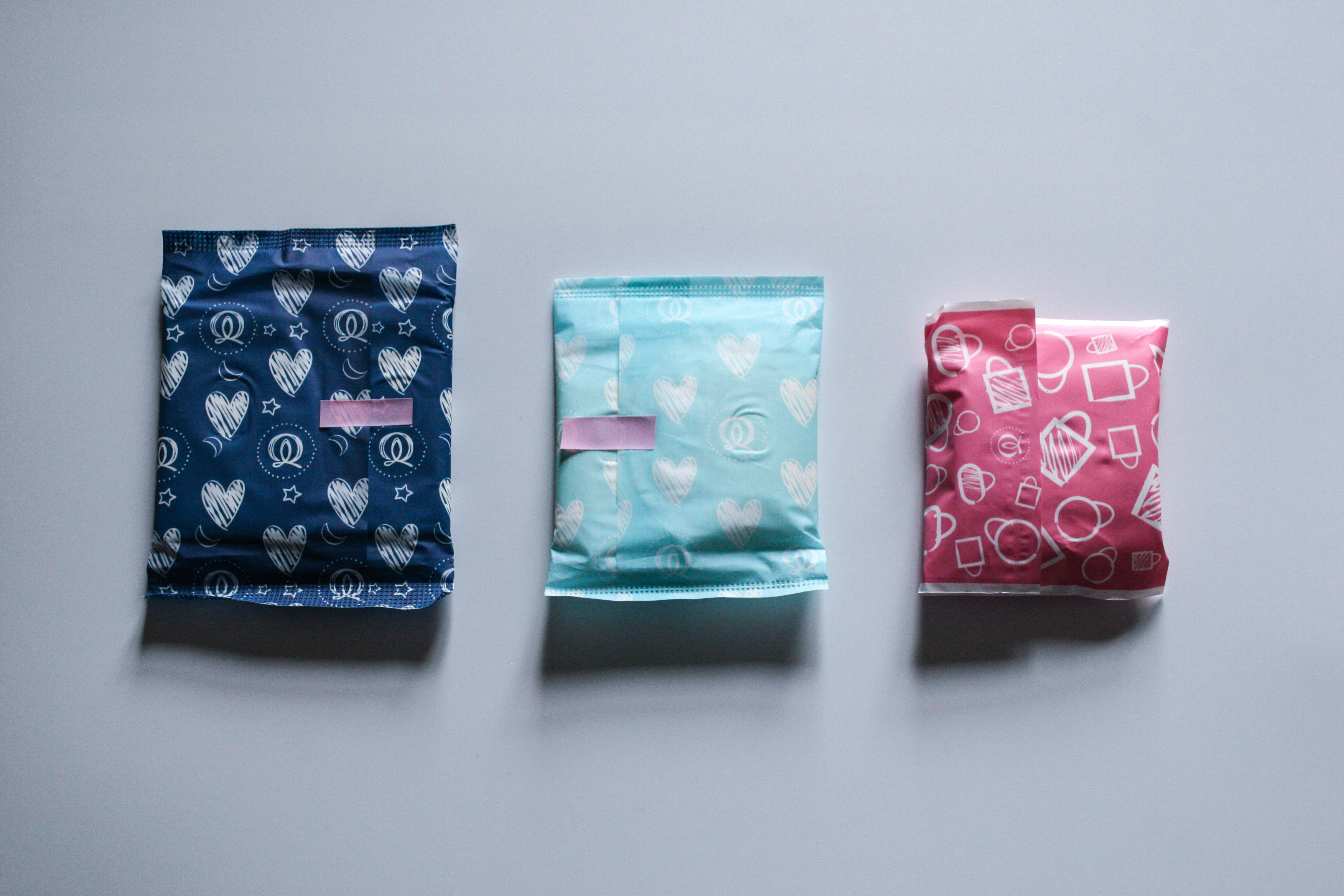
4. Bring it up when the time is right
As well as these steps, using the opportunities given to you in daily life - like in the bathroom or at the supermarket - is a great way to start talking about periods.
If you're in the supermarket with your child, have a wander past the toiletries aisle with the sanitary towels, tampons and other periods products. If they understand what periods are and what they'll likely need to manage their period, you might ask them whether there's anything they need.
This will tell you whether they really understand the situation, what's going to happen and what they'll need to manage their period. From here, you can continue the conversation in a more private space - like the car ride home. It's also a great way to show that periods aren't embarrassing or anything to be ashamed of, they're just another normal part of life and you pick up what you need from the supermarket just like anything else.
5. Brush up on the basics yourself
If you're a woman who's had a period for years now, you might have forgotten the basics because it's just a normal part of life. But kids will have heard things, read things and will naturally have plenty of questions all about the ins and outs of periods.
Traci says some of the most common FAQs that adults forget about are the simple ones - how much blood will be lost? Where should I get rid of the products? What happens if I go to school and forget to take a tampon or pad? So make sure you can discuss and explain fully - but in an age appropriate way. And if they catch you out, take it as a moment to learn together and find out the answer.
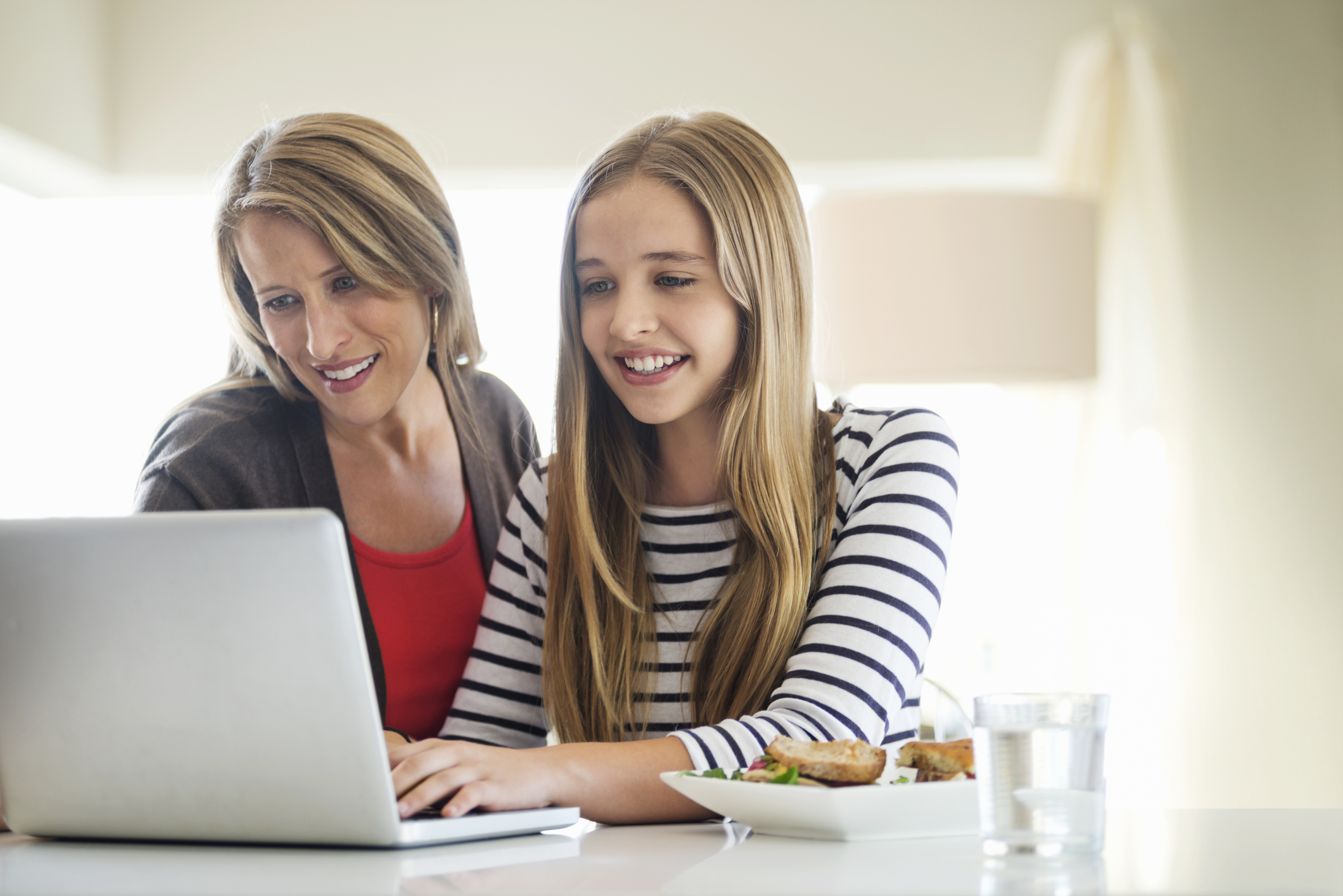
The same goes for talking to boys about periods too. Be sure to explain to them how it works, why women have periods and be prepared to answer any bizarre questions they have because of what they might have heard at school.
6. Ask them questions about what they know or might have heard
You can only hold back the tide of rumours so much at home. As soon as kids start to go through the early stages of puberty, probably in primary school, there will be chats all over the playground about what happens to both girls and boys as they go through puberty.
While you can give them all the information you believe is suitable at the time, they might be told things at school that you couldn't have predicted. So, be sure to ask them questions about what they've heard - and let them know that you won't be angry, whatever it is.
By asking them questions, you're opening up a safe space for them to talk about topics that might be uncomfortable for them at the beginning. It also gives you the chance to correct or clarify anything they've heard that's untrue or not quite right. Also in creating this relationship now, you're setting them up to ask you questions down the line when it comes to other serious developmental topics like sex and relationships.
7. Let them find information on their own
After having the initial chat, you may find that it's better to talk to children about periods with other sources of information. They may just find it all too embarrassing to talk about or they may just not be ready to start thinking about puberty yet. Either way, it's important that they still have access to reliable, truthful and helpful advice and information as and when they want it.
That's where books, like the ones below, are invaluable.
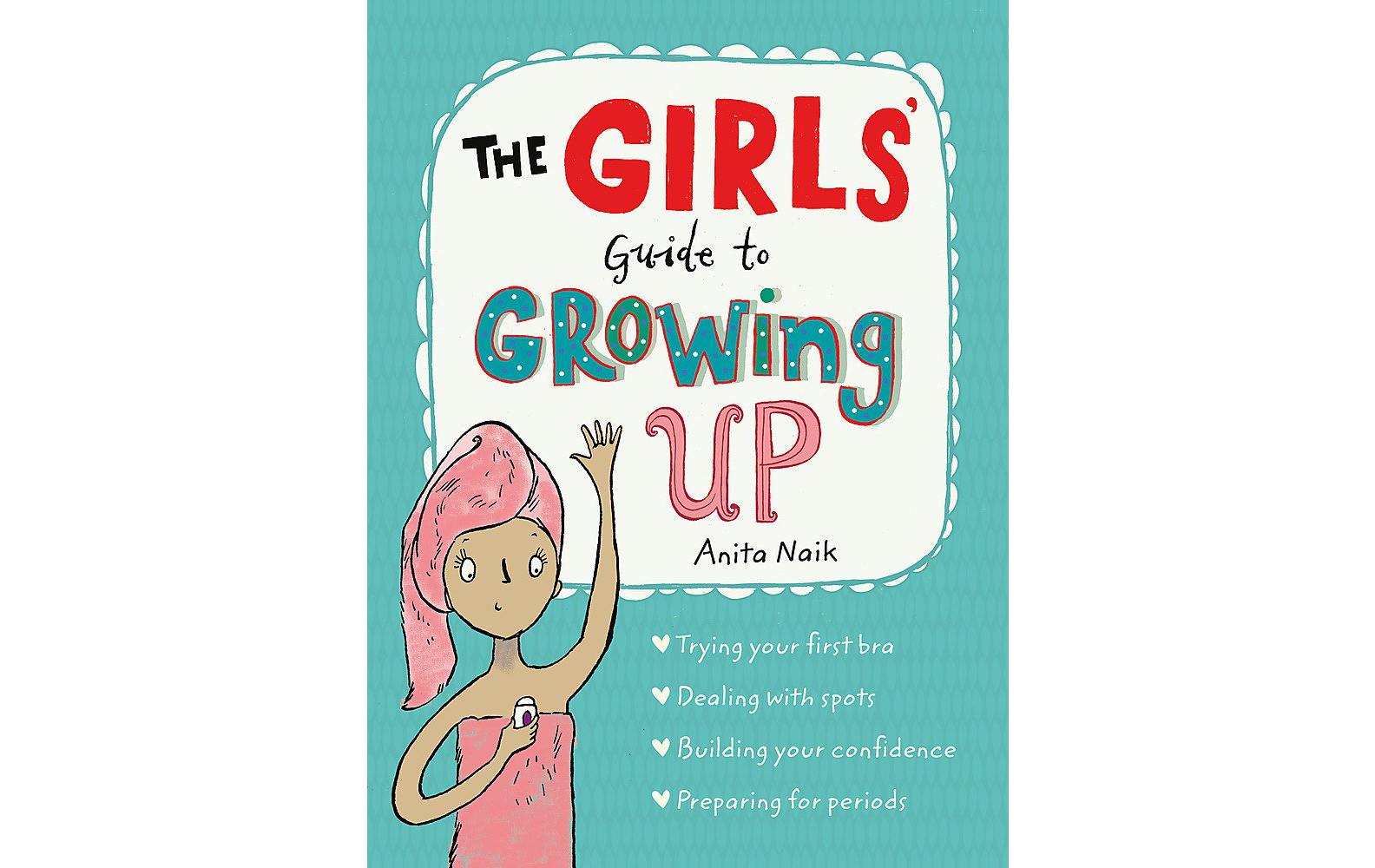
The Girls' Guide to Growing Up
Written by parenting expert and former Agony Aunt, Anika Naik, this book is an age-appropriate guide to everything that young teenagers need to know about growing up. As well as useful information on managing puberty, periods and personal hygiene, this book covers wider topics on growing up and how bodily changes may impact the way girls feel.
Suitable for ages: 9 to 11 years
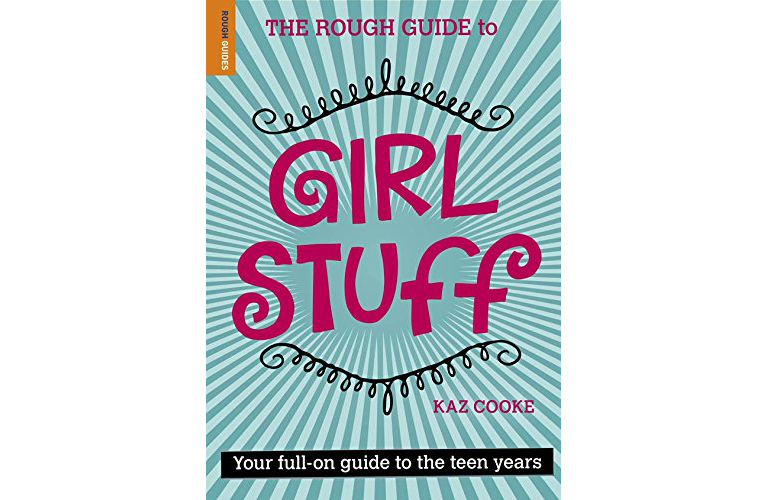
The Rough Guide To Girl Stuff
This book, by award-winning author Kaz Cooke, is full of everything young girls need to know about the teenage years. There's plenty of information about periods, what they are and why they happen, along with practical advice and tips on how to handle them through life. Split into four different themes: Body, Head, Heart and On the Go, each chapter covers a different area of growing up and teenage life. Complete with facts, hints, inspiring lists, entertaining illustrations and real quotes from real girls, this book aims to be a young woman's companion throughout her teenage years and a great way for parents to talk to children about periods.
Suitable for ages: 9 - 15 years
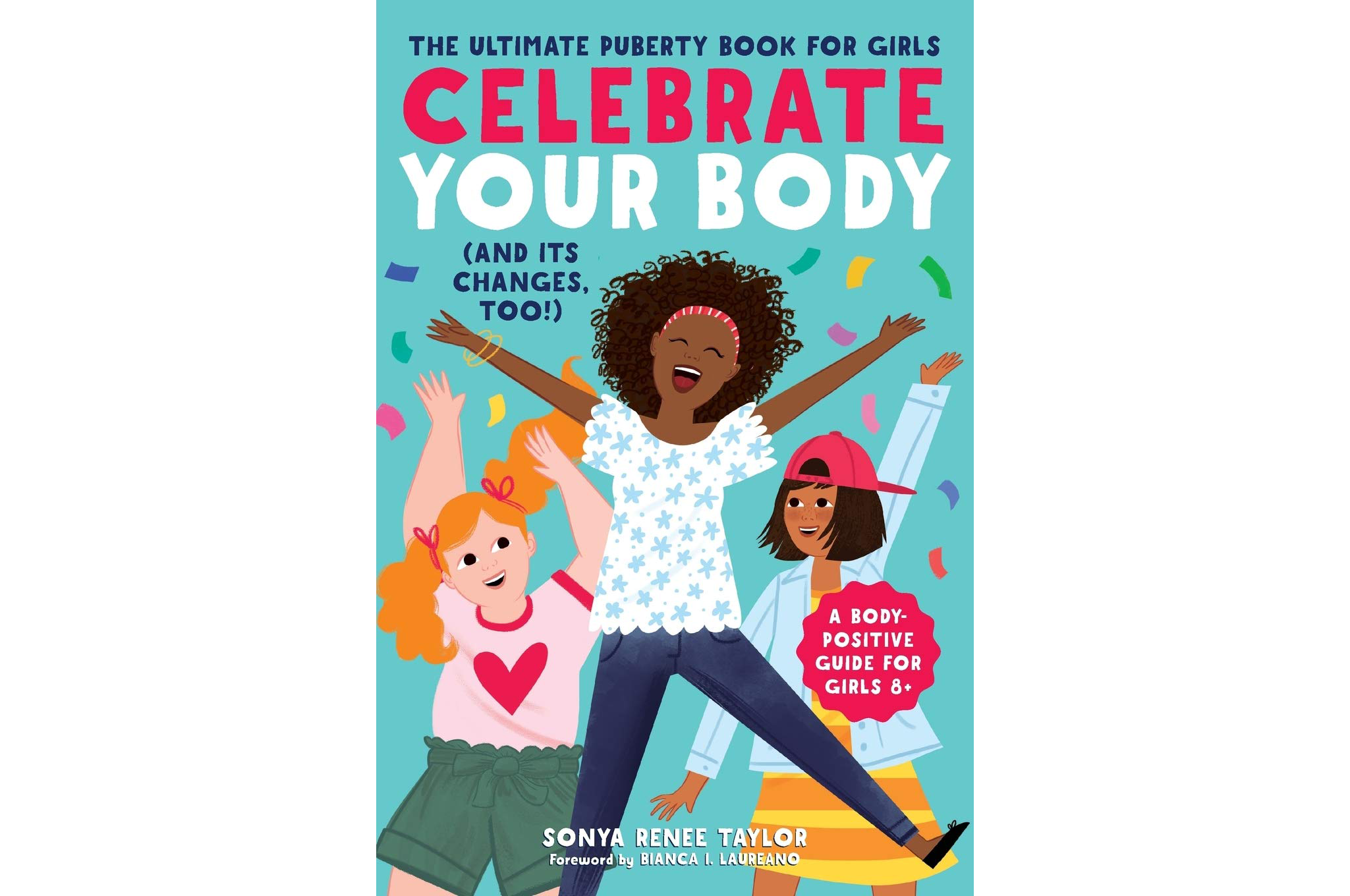
Celebrate Your Body (and Its Changes, Too!): The Ultimate Puberty Book for Girls
Celebrate Your Body is an entry-level book into the world of puberty by author Sonya Renee Taylor. It helps girls to face the changes happening to their bodies head-on, so they know what's coming and can be prepared for it - whether they have started their period or not. Rooted in making girls feel excited about growing up and empowered, rather than scared or overwhelmed, this book covers what young teenagers may want to know about period care, new body body hair, bras and more.
All three of these books have age-appropriate introductions to sex education, as well as tips and advice on dealing with social media, staying safe online, food issues, exercise and other issues that teenagers are likely to face through the years.
Video of the week

Grace Walsh is a health and wellbeing writer, working across the subjects of family, relationships, and LGBT topics, as well as sleep and mental health. A digital journalist with over six years experience as a writer and editor for UK publications, Grace is currently Health Editor for womanandhome.com and has also worked with Cosmopolitan, Red, The i Paper, GoodtoKnow, and more. After graduating from the University of Warwick, she started her career writing about the complexities of sex and relationships, before combining personal hobbies with professional and writing about fitness.